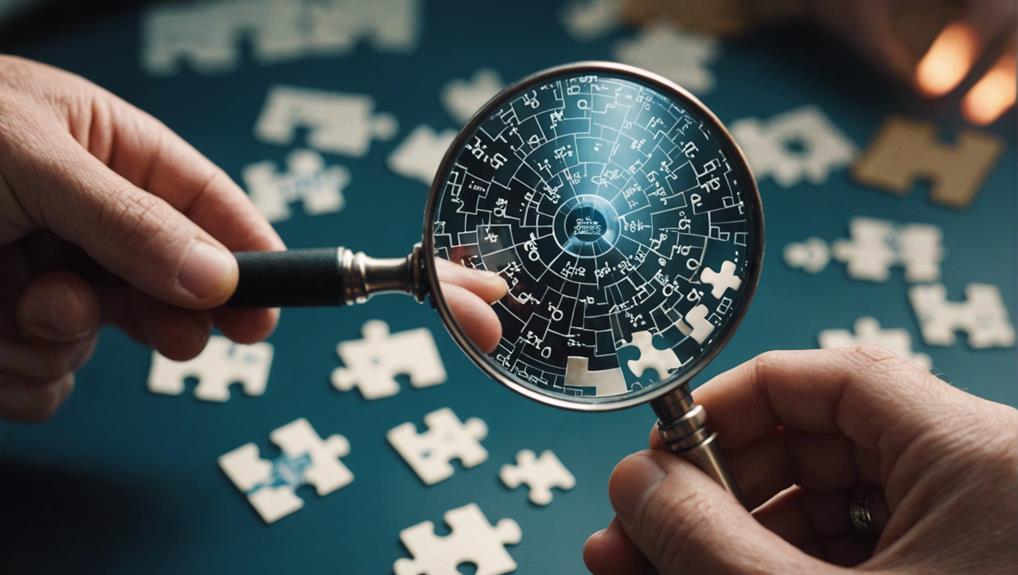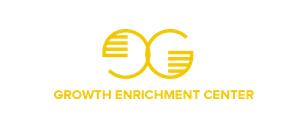
You might think that confirmation bias doesn't affect your decision-making, but it's more pervasive than you realize. Imagine how this subtle inclination to seek out information that aligns with your preconceived notions could be quietly shaping your choices without you even realizing it. Understanding the impact of confirmation bias on decision-making can shed light on why certain decisions are made and how they might be improved. Let's explore the depths of these influences together.
Selective Exposure
To combat selective exposure, challenge yourself to seek out diverse perspectives and information that may challenge your beliefs and preconceptions. It's easy to get comfortable in a bubble that only reinforces what you already think or believe. However, true growth and understanding come from exposing yourself to different viewpoints, even those that may initially make you uncomfortable.
By actively seeking out diverse perspectives, you open yourself up to new ideas and ways of thinking. This can lead to more well-rounded decision-making and a deeper understanding of the world around you. It's important to remember that being open to different viewpoints doesn't mean you have to abandon your own beliefs. Instead, it allows you to critically evaluate and potentially strengthen your own convictions.
Challenge yourself to engage with sources that may challenge your current beliefs. This can be a powerful tool in combating selective exposure and broadening your perspective. Embrace the discomfort that comes with challenging your preconceptions, as it often leads to personal growth and a more nuanced understanding of the complex issues we face.
Interpretation Biases
Guard against letting your preconceptions and biases cloud your interpretation of information and situations, as interpretation biases can greatly impact your decision-making process. When faced with new data or scenarios, it's essential to approach them with an open mind, free from the influence of past beliefs or desires. Interpretation biases occur when you unconsciously skew information to align with what you already think or want to be true. This can lead you to misinterpret evidence, overlook crucial details, or jump to conclusions prematurely.
To combat interpretation biases, actively challenge your initial interpretations. Take a step back and consider alternative explanations or viewpoints. Engage in constructive dialogue with others to gain diverse perspectives and broaden your understanding. By remaining vigilant and questioning your own assumptions, you can aim for a more objective and accurate interpretation of the information at hand. Remember, the clarity of your interpretations forms the foundation of your decision-making process, influencing the outcomes you achieve.
Biased Memory Recall

When it comes to decision-making, your memory isn't as reliable as you may think.
Selective memory retrieval, distorted recall patterns, and memory reinforcement effects all play a role in shaping how you remember past events.
Be mindful of how these biases can influence your perceptions and judgments moving forward.
Selective Memory Retrieval
Engaging in biased memory recall can greatly influence your decision-making process, leading to potential errors in judgment. When you selectively retrieve memories that align with your preconceived beliefs or desires, you may inadvertently ignore vital information that could offer a more balanced perspective.
This tendency to cherry-pick memories can create a distorted view of reality, skewing your decisions towards confirmation of what you already believe to be true. Recognizing this inclination within yourself and actively challenging it by seeking out diverse perspectives and considering all available information is critical.
Distorted Recall Patterns
To combat distorted recall patterns in decision-making, actively challenge your memory biases by consciously endeavoring to seek out diverse perspectives and considering all available information. Our memories aren't always as reliable as we believe them to be.
Often, we tend to remember information that confirms our existing beliefs, while conveniently forgetting contradictory evidence. This can lead to skewed perceptions and flawed decision-making. By consciously making an effort to question your own recall patterns, you open yourself up to a broader range of viewpoints and a deeper understanding of the situation at hand.
Embrace the opportunity to explore different perspectives, challenge your biases, and aim for a more balanced and informed decision-making process. Remember, the more you actively seek out diverse information, the more accurate and well-rounded your decisions will be.
Memory Reinforcement Effects
Challenge yourself to recognize how biased memory recall can subtly influence your decision-making process, shaping your perceptions and potentially leading you astray from a more objective assessment of the information at hand. Biased memory recall can impact your decision-making in several ways:
- Selective Memory: You may remember information that confirms your existing beliefs more vividly.
- Memory Distortion: Your recollection of events may be altered to align with your preconceived notions.
- Reinforcement Loop: The more you recall a biased memory, the stronger it becomes, solidifying your skewed perspective.
- Overlooking Contradictory Evidence: Biased memory recall can cause you to overlook important information that contradicts your existing beliefs.
Stay mindful of how your memories may be reinforcing your biases, and aim to approach decisions with a more open mind.
Overconfidence in Judgments

You may find yourself misjudging your own abilities, sometimes being overly confident in your judgments. This tendency can lead you to ignore contradictory evidence that challenges your beliefs.
Misjudging Own Abilities
Often, individuals tend to overestimate their own abilities, leading to overconfidence in their judgments. This overconfidence can cloud your decision-making process and hinder your ability to see things objectively. Here's how misjudging your own abilities can impact your decision-making:
- Illusion of Control: You might believe you have more control over outcomes than you actually do.
- Overestimation of Skills: Overestimating your skills can lead to poor choices and missed opportunities.
- Failure to Seek Feedback: Overconfidence can make you less likely to seek feedback or consider alternative perspectives.
- Risk-Taking Behavior: Misjudging your abilities can result in taking on excessive risks without fully evaluating the consequences.
Ignoring Contradictory Evidence
When you focus solely on information that confirms your existing beliefs or judgments, you may unintentionally ignore contradictory evidence that could provide valuable insights and lead to more informed decisions. Overconfidence in your judgments can blind you to alternative perspectives and prevent you from seeing the full picture.
By dismissing contradictory evidence, you limit your ability to make well-rounded decisions, potentially missing out on pivotal details that could change the course of your choices. Embracing diverse viewpoints and considering all sides of an argument can help you avoid the pitfalls of confirmation bias.
Challenge yourself to seek out information that challenges your beliefs, as it's often in the presence of conflicting evidence that the most growth and learning occur.
Influence on Risk Perception
In decision-making, confirmation bias can greatly influence how individuals perceive risks, potentially leading to skewed assessments and flawed judgments. When confirmation bias impacts risk perception, it can hinder your ability to make well-informed decisions.
- Selective Exposure: You might seek information that confirms your pre-existing beliefs about a certain risk while ignoring contradictory evidence.
- Overconfidence: Confirmation bias can make you overconfident in your risk assessments, leading you to underestimate potential dangers.
- Narrow Framing: Your tendency to focus only on information that supports your views can limit your understanding of the full scope of risks involved.
- Delayed Reaction: Ignoring or downplaying contrary information due to confirmation bias can delay your response to changing risk factors, putting you at a disadvantage.
Being aware of how confirmation bias influences your risk perception is the first step in mitigating its impact on your decision-making process. Take the time to evaluate information objectively and consider all perspectives to make more accurate risk assessments.
Impact on Problem-Solving

Confirmation bias not only distorts risk perception but also greatly impacts your problem-solving abilities, potentially leading to suboptimal outcomes. When faced with a problem, confirmation bias can cloud your judgment by nudging you towards seeking information that confirms your preconceptions while disregarding contradictory evidence. This tunnel vision limits your ability to contemplate alternative perspectives and innovative solutions, hindering your problem-solving process.
By succumbing to confirmation bias in problem-solving, you unintentionally restrict the range of possibilities you explore. This narrow focus can prevent you from identifying the most effective or creative solutions to a particular issue. Over time, this pattern can become ingrained, reinforcing a cycle of biased decision-making that stifles personal and professional growth.
To counteract the impact of confirmation bias on problem-solving, consciously challenge your assumptions and actively seek out diverse viewpoints. Embrace a mindset that values critical thinking and welcomes constructive feedback. By cultivating a habit of open-mindedness and flexibility, you can break free from the constraints of confirmation bias and maximize your full problem-solving potential.
Reinforcement of Beliefs
Allow your beliefs to evolve and grow by recognizing how confirmation bias reinforces your existing viewpoints. It's natural to seek out information that aligns with what you already believe, but being aware of this tendency can help you make more informed decisions.
Here are four ways in which confirmation bias reinforces your beliefs:
- Selective Exposure: You may unconsciously gravitate towards sources that support your opinions, shutting out contradictory information.
- Interpretation Bias: When processing new information, you might interpret it in a way that confirms what you already think, rather than objectively analyzing it.
- Memory Bias: Remembering information selectively can lead you to recall only details that support your beliefs, reinforcing them over time.
- Group Polarization: Surrounding yourself with like-minded individuals can create an echo chamber effect, where everyone reinforces each other's beliefs without critical evaluation.
Frequently Asked Questions
How Does Confirmation Bias Affect Critical Thinking Skills?
When confirmation bias influences your thinking, critical skills can be clouded. Recognizing this tendency to seek information that aligns with your beliefs is crucial. Challenge yourself to explore diverse perspectives for better decision-making.
Can Confirmation Bias Lead to Relationship Conflicts?
When confirmation bias takes the wheel, relationships can hit rough patches. Your strong beliefs may clash with others', causing misunderstandings and tensions. Keep an open mind, listen actively, and nurture understanding to bridge gaps.
Is Confirmation Bias More Prevalent in Certain Age Groups?
You might wonder if confirmation bias is more common in specific age groups. It's important to realize that everyone can fall victim to it. Stay open-minded and seek diverse perspectives to make well-rounded decisions.
Does Confirmation Bias Impact Creativity and Innovation?
When you embrace diverse perspectives and challenge your assumptions, creativity flourishes. Confirmation bias can stifle innovation by limiting your openness to new ideas. Stay curious, question your beliefs, and explore different angles to ignite your creative potential.
How Can Confirmation Bias Be Mitigated in Group Decision-Making?
In group decision-making, remember to embrace diversity of thought, encourage open dialogue, and actively seek out differing perspectives. By fostering a culture of curiosity and critical thinking, you can mitigate the impact of confirmation bias.
Conclusion
As you navigate the complex landscape of decision-making, remember that confirmation bias can cloud your judgment in subtle ways.
By acknowledging its influence on selective exposure, interpretation biases, and memory recall, you can avoid falling into the trap of overconfidence and reinforce beliefs that may not serve you well.
Stay open to new information, challenge your assumptions, and embrace the discomfort of uncertainty.
Only then can you truly break free from the chains of biased decision-making and embrace a more balanced and rational approach.

